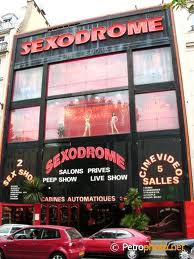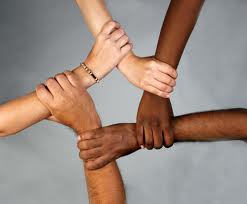As the time approaches, it stills unreal and very surreal that soon I’ll be on a flight Paris bound. In some ways Paris still presents itself a mystery to me, I’ve fallen in love with this place from a tender age only knowing it at its face value. Paris to me was always about great food, wine and of course fashion simply perfection. As I read the articles, I recalled a conversation with my co-worker Camille, who happens to be an international French student, while sharing my excitement on the upcoming trip; she said to me “Paris isn’t this great place that everyone thinks that it is”. Although she elaborated to describe the increase in crime, from my own perspective it is the government’s inability to accept diversity and acknowledge the differences. While reading the New York Times article France fights Racism by outing “Race”, I thought to myself a world without the concept of race would be ideal. As human beings we fight especially minorities to even out the playing field and to be seen as viable and worthy counterpart regardless of our religion or skin color. However, a world without race means a denial of differences and suffering. I agree with some of the arguments against France’s idea removal of race from its constitutions and legal documents. I believe that it serves as a means to sweep all inequalities under the rug. In a sense it is imposing French supremacy on others. Individuals are forced to being French; it pushes this whole “French” first and only objective. You’re not black; you’re not white but You’re French. Another view is does the eradication of the word eliminate the plight and discrimination the Lebanese and Algerians face?
Another article that touches on France’s changing fabric is Thomas Chatterton Williams’, How Hipsters ruined Paris. This writing touches on the rise of urbanism specifically the Pigalle region, which goes against French class and taste. As the writes describes the feel of the area, an extreme version of NYC, the village came to mind. Although the concept of sexy has always been visible in France’s culture, it was subtle and classy. Therefore this outlandish red light district entailing brothels and hostess bars startles me because this is not France that I have imagined. The image of the masseuse sun bathe just appears tasteless especially in an area that was once described “la Nouvelle-Pigalle”. However this shows that taste is a social construct that is every changing. I agree with the author’s resolution of not representing urban life style as this uniform expression of the middle and upper middle class rather as an “assortment of lifestyles and social realities. I also believe that the government should adapt this solution rather than eliminating the word race, acknowledge and address the issues that it entails. This can establish the platform for equality.



Great article reviews!This is so interesting.